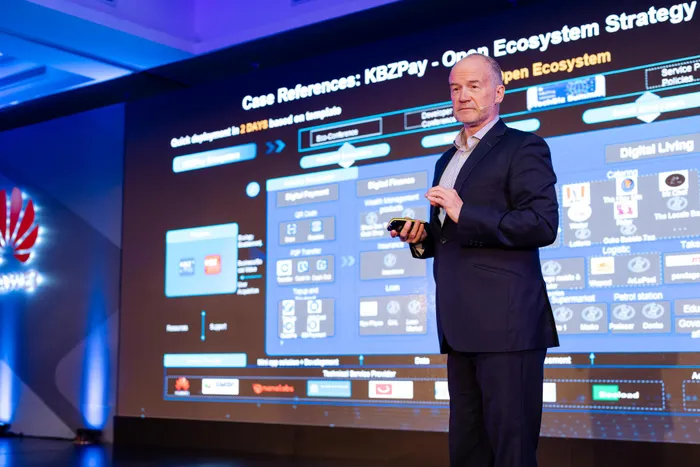
At the Huawei Intelligent Finance Summit 2025, industry leaders discussed the integration of mobile-first strategies and AI in transforming Africa's financial services landscape.
Image: Supplied
At the Huawei Intelligent Finance Summit (HiFS) Sub-Saharan Africa 2025, discussions centred on the future of digital transformation in Africa’s financial services sector.
The summit explored how mobile-first strategies, resilience, and AI integration are shaping financial services across the continent.
In his opening speech, Victor Guo, President of Huawei Sub-Saharan Africa Enterprise Business, noted that growing smartphone adoption and economic activity are contributing to increased financial inclusion.
Guo highlighted how digital infrastructure, including cloud services and AI solutions, is helping financial services reach broader segments of the population.
As an example, Guo pointed to collaborations such as the development of M-PESA with Safaricom, a mobile money service now widely used in East Africa. He also mentioned current efforts to build fully digital ecosystems aimed at expanding user bases across the continent.
Jason Cao, CEO of Huawei Digital Finance Business Unit, addressed the technical challenges financial institutions face as they move toward digital operations.
He noted that despite global advancements, service reliability remains a critical issue.
In response, Huawei introduced its R-A-A-S (Reliability, Availability, Autonomy, and Security) framework to support financial institutions. Key areas include ensuring continuous service through multi-centre cloud services, enabling autonomous system management via AI, and strengthening cybersecurity defenses.
Cao emphasised the importance of mobile-first strategies, given projections that by 2030, 81% of Sub-Saharan Africans are expected to own smartphones.
He said institutions will need to offer services designed primarily for mobile users, underpinned by resilient infrastructure.
In a related session, Ian Ravenscroft, Vice President of Mobile Money at Huawei, discussed the increasing role of super apps — platforms that combine various services into a single mobile application.
He argued that integrating third-party digital services into financial apps could help institutions scale more quickly without heavily expanding their IT departments. Ravenscroft cited the example of KBZ Bank in Myanmar, which has grown its mobile user base by offering a range of integrated services through its platform.
Cloud services and AI were highlighted as critical enablers for financial services in Africa. Roc Bai, Vice President of Huawei Cloud Sub-Saharan Africa, pointed out that local cloud infrastructure — including three availability zones in South Africa — has improved service resilience.
Bai stressed that the use of AI and data-driven models is becoming central to business strategy across industries, including finance. Huawei’s cloud solutions, such as DWS and Datalake, were mentioned as tools to help institutions manage large volumes of data and deliver faster, more efficient services.
The summit concluded with a panel discussion featuring technology and financial industry experts. Moderated by futurist Brett King, the session explored challenges such as infrastructure gaps, cybersecurity threats, and the need for skills development to support financial sector innovation in Africa.
The event brought together over 150 participants, including executives from banks, technology companies, and financial institutions, to exchange ideas on building a more inclusive, resilient, and digital financial ecosystem in Sub-Saharan Africa.
FAST COMPANY
